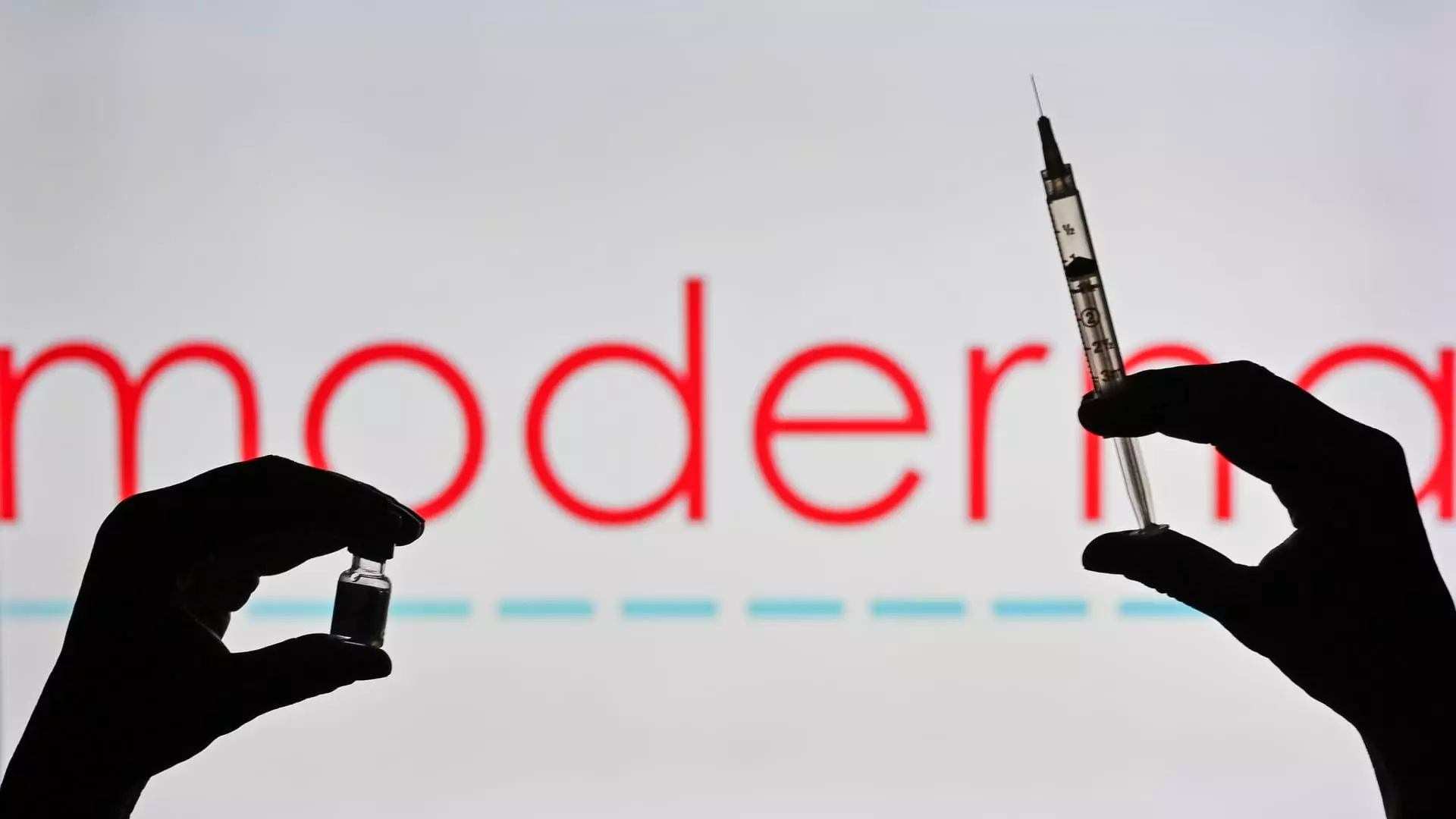Moderna and Merck have recently revealed positive three-year data on their experimental vaccine, which was administered to patients suffering from the most deadly form of skin cancer in combination with the therapy Keytruda. The vaccine, in conjunction with Merck’s Keytruda, has proven to enhance survival rates and demonstrate long-lasting efficacy in a midstage study involving patients with a severe form of skin cancer. The companies are currently presenting this data at the American Society of Clinical Oncology annual meeting in Chicago. This breakthrough is a crucial milestone for Moderna, especially considering the challenges it faced last year when the demand for its Covid vaccine drastically decreased.
Among the new data presented, nearly 75% of patients who received the vaccine in combination with Keytruda were still alive without any recurrence of cancer symptoms at the 2 ½-year mark. This is a significant improvement compared to the 55.6% survival rate among patients who solely received Keytruda. The positive impact of the combination was evident across various patient subgroups, irrespective of tumor mutation counts or the presence of the PD-L1 protein known to regulate immune responses within the body. Dr. Kyle Holen, Moderna’s head of development, therapeutics, and oncology, highlighted the broad potential of the vaccine in treating a wide range of melanoma patients.
The overall survival rate of patients receiving the vaccine with Keytruda after 2 ½ years stood at an impressive 96%, contrasting with the 90.2% survival rate among those treated with Keytruda alone. Patients with severe melanoma who received the combination therapy were shown to be 49% less likely to experience a recurrence of cancer or face mortality over a three-year period. Additionally, the combination significantly reduced the risk of cancer metastasis and mortality by 62%. Although there were some common side effects such as fatigue, injection site pain, and chills associated with the vaccine, they were predominantly mild in nature.
The vaccine, which harnesses the same mRNA technology as Moderna’s Covid vaccine, is custom-made based on an analysis of the patient’s tumor post-surgery. Its primary objective is to educate the immune system to identify and target specific mutations in cancer cells. Moderna’s CEO, Stephane Bancel, expressed enthusiasm about reducing the time between tumor analysis and vaccine administration. On the other hand, Merck’s Keytruda, already approved to treat melanoma and other cancers, is part of a class of immunotherapies designed to neutralize proteins aiding cancer cells in evading the immune system.
In a significant development, the U.S. Food and Drug Administration has granted breakthrough therapy designation to the cancer vaccine for melanoma treatment, aiming to expedite the review and development process. Moderna is also preparing to seek accelerated approval from the FDA, a process designed to fast-track the approval of drugs catering to serious medical conditions with unmet needs. Given that melanoma contributes to a significant portion of skin cancer-related deaths, the urgency of developing effective treatments is paramount.
Moderna and Merck are currently evaluating the combination therapy in a phase-three trial for late-stage melanoma treatment, which commenced in July. Furthermore, Moderna is conducting another phase-three trial involving lung cancer patients. Collaborative efforts between Merck and Moderna have initiated mid- to late-stage trials on the vaccine and Keytruda combo for advanced-stage common skin cancer and specific kidney cancer patients. Additionally, studies focusing on patients with bladder cancer are also underway.
By elucidating the groundbreaking impact of Moderna and Merck’s experimental vaccine on melanoma patients, it becomes evident that innovative therapies hold immense promise in combating complex diseases like skin cancer. Through continued research and development efforts, these companies are spearheading a new era of personalized medicine, offering hope to patients battling life-threatening conditions.


Leave a Reply